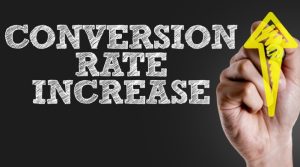Table of Contents
The key challenge for sales managers in the B2B industry is how to boost their sales force productivity. Sales Customer Relationship Management and marketing automation are both parts of the solution but may seem somehow incompatible at first glance. Each of them indeed comes up with its methods to track leads, provide insights on potential customers or boost the efficiency of a sales team. Yet, both have something to offer, and joining forces will bring outstanding results. This article explores the reasons why sales CRM and marketing automation will become a perfect match in 2022.
Sales CRM and Marketing Automation
Customer Relationship Management
CRM is a software application that integrates with an organization’s existing business processes and IT infrastructure to manage and automate customer interactions, regardless of channel.

A Customer Relationship Management software can be used by marketing departments to maintain their contact lists, email campaigns, and social media activities. It can also be used by sales teams to track leads generated from both digital and offline channels, target leads, and follow up with them until they become customers. CRM software can be used by support teams to monitor customer issues and escalate unresolved issues to other departments or agents as needed.
A CRM system can be used for both customer retention and acquisition purposes. For example, you may want to create an automated reminder for past customers so that they don’t forget about your company and its products or services.
Marketing Automation
Marketing automation is a software application that allows you to automate your marketing tasks. It’s a powerful tool for generating leads and managing your contacts, but it can also help you grow your business by delivering the right message to the right person at the right time.

Marketing automation can be used for email marketing campaigns, social media marketing, lead generation, and more. The software allows you to create automated processes that are triggered when certain events occur. For example, you could set up an automated email campaign that’s sent out whenever someone visits your website or fills out an online form.
Marketing automation tools provide a wide range of features to help you engage with prospects in ways that are most likely to result in them buying from you.
Integrating Sales CRM and Marketing Automation
Sales CRM and marketing automation are two different systems, but they work together to automate your sales process.
A sales CRM system is the main tool for all the sales team members in your company. It helps to keep track of leads, schedules, tasks, and other important information about each deal. Marketing automation is a set of tools that help you understand what actions your leads take so that you can give them the right content at the right time.
The good news is that these two tools can be used together. You can use lead nurturing campaigns to give your prospects relevant content based on their interests and stages in the buying process. You can also use marketing automation to send personalized emails with content that matches what they need at each stage of their journey.
Sales CRM and Marketing Automation As a Team
Both tools offer different features that can help improve your sales process and marketing strategy. However, there are several reasons why you need both of these systems:
1. Enhance Sales Intelligence
Sales and marketing complement each other. When sales and marketing work together, it’s a beautiful thing. Salespersons can focus on selling and closing deals. Marketers can focus on creating great campaigns that will drive more leads.
The problem is that most companies don’t have a system in place that allows them to share contact information between sales and marketing teams easily. Without this level of integration, it’s almost impossible to get both teams working together to achieve great results.

That’s where sales CRM software comes in. A simple CRM software helps you organize your contacts, leads, and accounts. Your team can always stay informed about what’s happening with each performance. The best sales CRMs also provide insights into how each customer has been doing overtime. It identifies patterns that help you predict future behavior.
Marketing automation software takes things one step further. It automates many of the tasks associated with lead generation and nurturing campaigns. Marketing automation software allows you to deploy targeted emails, web pages, and other types of content.
2. Gain Powerful Insights and Predictive Analytics
Sales CRM software collects detailed information about your customers and prospects across. The most prominent reason to use CRM and marketing automation is to gain powerful insights and predictive analytics that can help drive decisions.
Combining data from many sources into one platform is a massive strength of both CRM and marketing automation. With this kind of visibility, it’s easier to understand what’s driving revenue. That allows you to identify opportunities for optimization and improve your target market. You can also make smarter decisions about which leads are most likely to convert.
For example, imagine you’re an eCommerce retailer who sells both products and services. Your sales team has done a great job closing deals with potential customers. But they haven’t followed up effectively after closing a deal. That’s why you want to know which leads are falling through the cracks so you can take action before it’s too late.
You could create a lead scoring system that ranks each prospect based on their likelihood of becoming a customer in the future. Then you can use that information to focus on which leads need more attention from your sales team.
3. Real-Time Customer Data
Marketing automation software provides real-time customer data that all departments can use in an organization. Marketing automation companies use data collected from many sources. These include social media platforms, email campaigns, websites, etc. This data can be used to create unique profiles for each customer.
This gives you insight into their needs and buying habits so you can better serve them throughout the sales process. Meanwhile, a simple CRM for small businesses pulls in all your customer data from various accounting software. You get a complete picture when communicating with prospects and clients.

For example, if a prospect fills out a lead form on your website and enters their email address, it’s added to a list within your marketing automation tool where it can be managed and segmented. Suppose someone fills out a contact form on your website or downloads an ebook while browsing social media. In that case, this information is automatically added to their contact record within the CRM system. Thus, it can be managed appropriately by the right person at the right time.
4. Deliver Timely Personalization
If you want to deliver personalized experiences to your customers, your CRM and marketing automation systems should be integrated. Without integration, you cannot use data from both systems to personalize your customer experience.
For example, suppose you are using a static email template in your email campaign but have the latest information about your customers in your simple CRM software. In that case, you won’t be able to include this information in your email template. Instead, you will have to send out the same email template repeatedly. This results in poor ROI as well as low customer satisfaction levels.
5. Increase Lead Conversions

Marketing automation helps you generate leads by automating the process of prospecting, nurturing, and closing deals. Sales CRM enables you to convert those leads into actual sales by tracking them through the entire sales cycle.
You can use both tools to ensure that every lead goes through a consistent process. This way, you know what happens when someone clicks on your ad or signs up for your webinar. That way, you’ll get more qualified prospects ready to make a purchase decision in the future.
6. Unify Marketing Campaigns and the Sales Funnel
Marketing automation platforms allow marketers to execute campaigns across many channels. They don’t have to worry about how they will be delivered. Sales CRM platforms do the same thing for sales reps. When these two systems are integrated, you can unify your campaigns so that all your efforts are working towards closing more deals.
You can ensure that your lead generation efforts aren’t wasted with sales automation. You can send out duplicate emails or make mistakes because you don’t have enough information about your customers’ needs. With marketing automation, you can target leads who want what you sell instead of wasting time on those who don’t care about what you offer.
7. Improve Customer Service

Customer service is an essential part of any business’ success with customers. Yet it is often overlooked in favor of other marketing strategies. The reality is that customer service needs to be considered as part of any sales strategy. This ensures a strong customer experience throughout your relationship with them throughout your lifetime. Simple CRM tool helps you track customer service issues.
It allows you to record details on each one to see what types of problems come up often and how efficiently each person handles them. This information helps identify areas where training may be required or where procedures need improving. Your staff members can thus access the same information when dealing with customers.
8. Measure and Improve Results
The first thing that marketing automation and CRM can do together is measure results. This means tracking what customers do and don’t do after interacting with your brand. This data can improve future interactions, making them more likely to result in conversions and sales leads.
For example, if someone signs up for a free trial but never converts into a paid customer, that’s valuable information. You can use this data to see if there are any issues with your funnel. You can spot if there’s something about your product that needs improvement before it gets purchased by someone else.
Conclusion
We see these two fields as the perfect marriage. Both try to reach goals that help smaller businesses succeed, and both are essential. But, neither can reach its full potential on its own. An easy-to-use CRM manages the sales department.
Marketing automation uses insights from the whole of the company to achieve success. The merging of these two fields will give small businesses a better chance of succeeding in this global, ever-changing business landscape.

